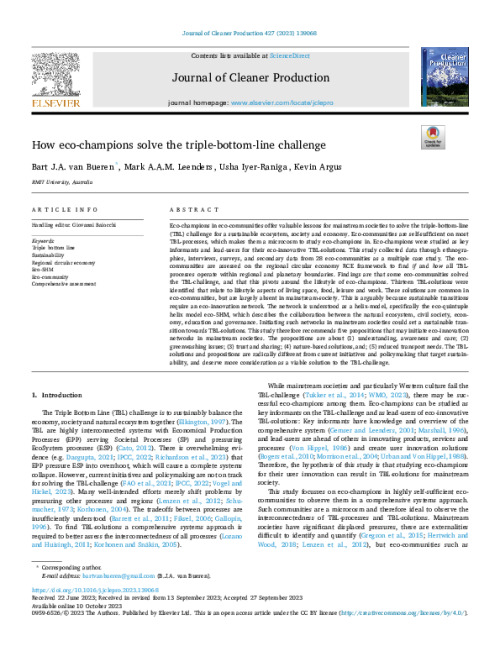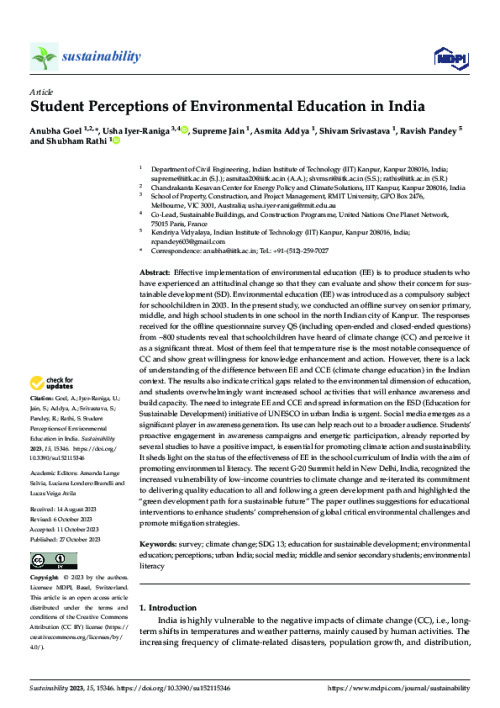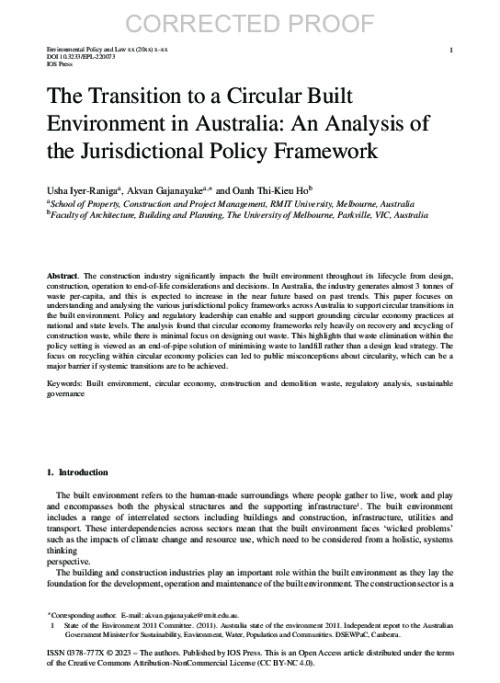Closing the loopholes in circular economy definitions and assessments using ontological criteria, with a demonstration for Australia
The burgeon concept of Circular Economy (CE) has fundamental issues hindering clarity and comprehensive assessments. This paper uses established ontological criteria to review and improve the CE definition and (assessment) frameworks. The review reveals that mainstream CE definitions and assessments are fuzzy, shift problems, oversimplified and not synchronized. This causes many loopholes that not lead towards sustainability. Therefore, an improved definition and framework is proposed, specifically for CE of XL to XS regions (scales from planetary to neighborhoods). A CE should strive towards self-sufficiency on each scale to avoid problems shifting to other regions or future society. The framework elaborates on a comprehensive systems-approach, which connects the triple bottom line across nine ecosystem processes, eight societal processes, and six economic production processes. The proposed definition and framework are demonstrated in an assessment of regional pressures and their impacts of Australia with 2020 data. The framework aims to better inform decision-makers on trade-offs between vital processes to minimize unintended problem shifting. The definition and framework have improved universal application for meaningful comparisons and optimization towards a sustainable CE in any region.
This article is directly related to th work of the OPN SBC programme mainly circular economy.


